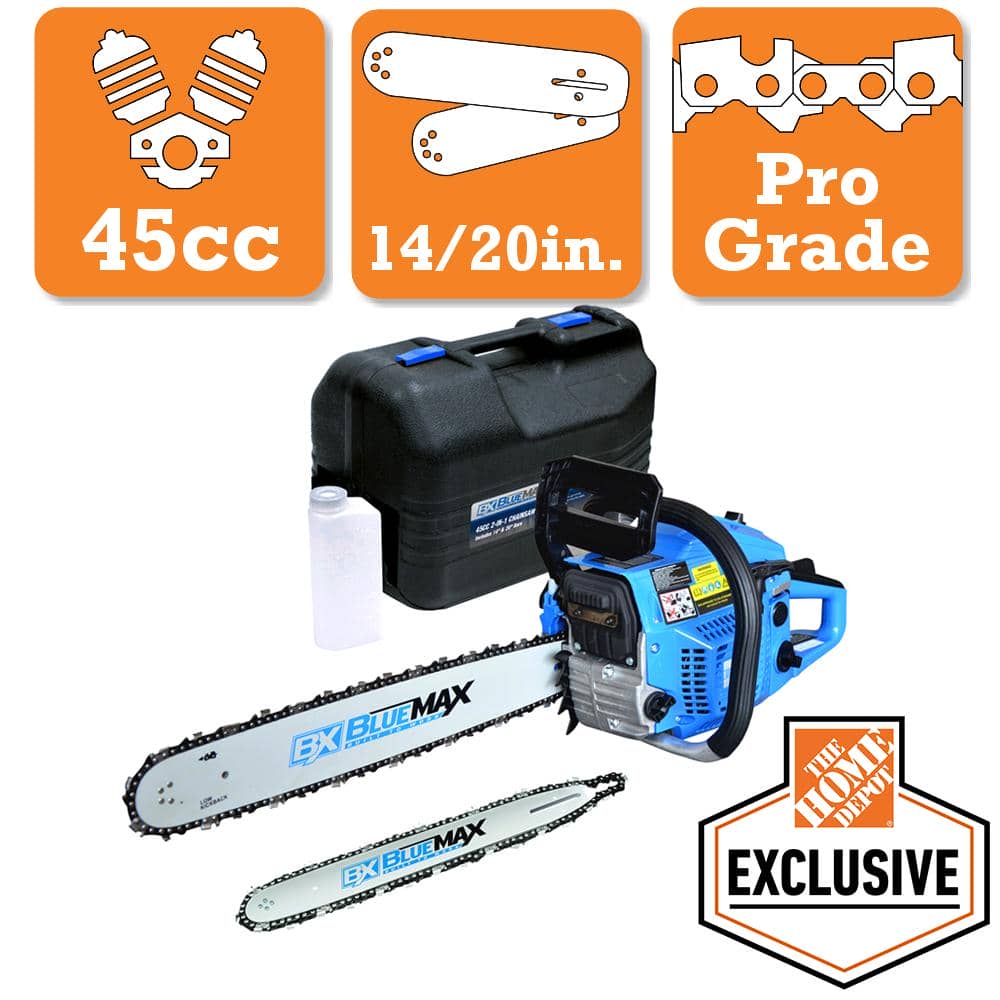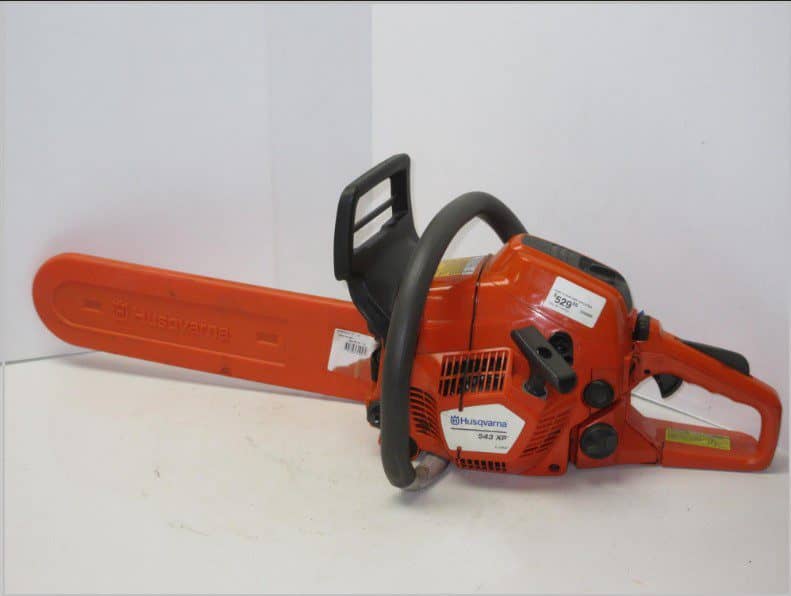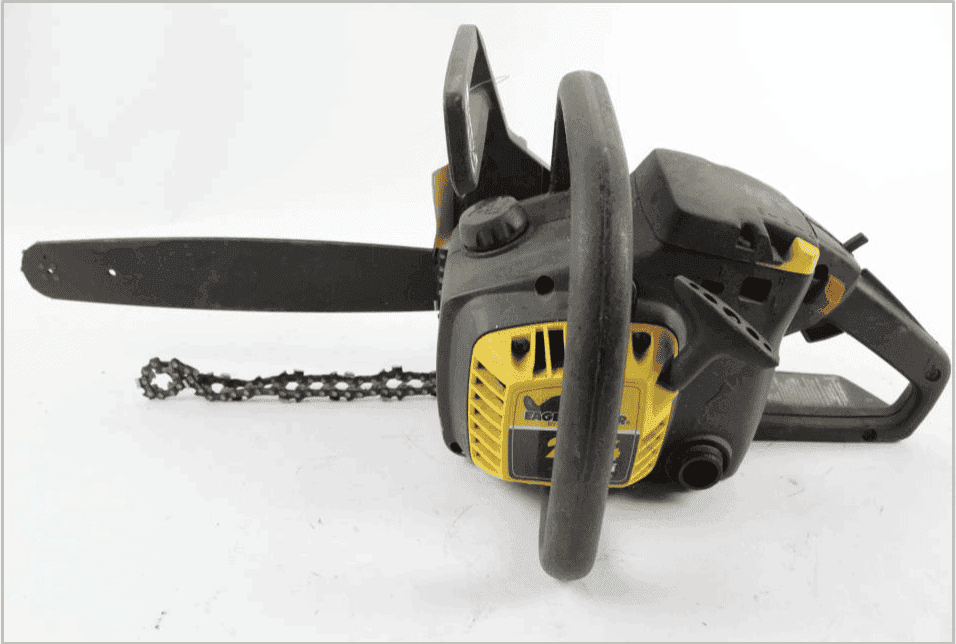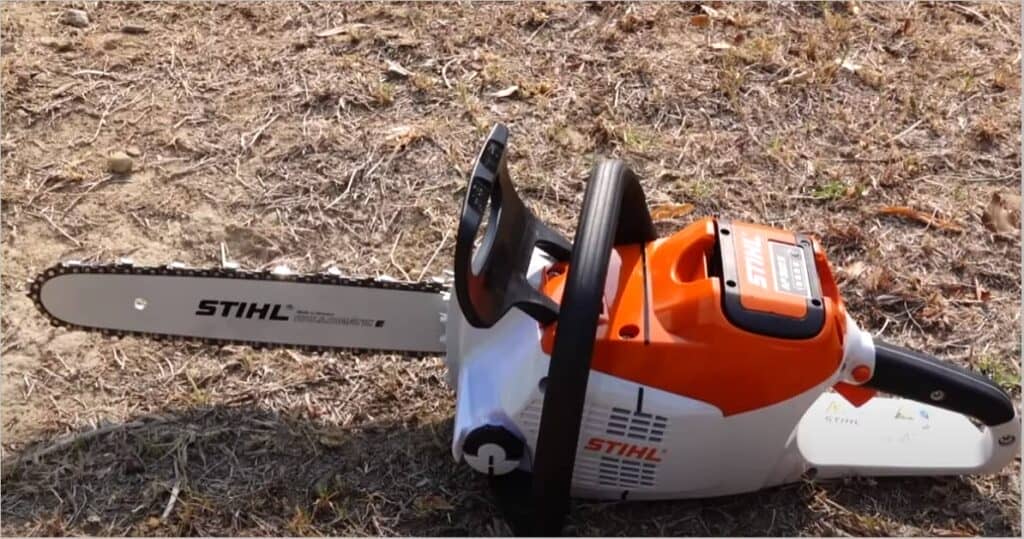Renting a chainsaw from Home Depot and Lowe’s Rental Chainsaw can be a convenient option for homeowners and contractors alike. However, it’s important to weigh the pros and cons before making a decision.
Pros:
- Convenience: Renting a chainsaw allows you to avoid the upfront cost of purchasing one. It’s also a good option for occasional use or for projects that require a specific type of chainsaw.
- Variety: Home Depot and Lowe’s offer a wide range of chainsaws for rent, including electric, gas, and cordless models. This allows you to choose the right tool for your specific needs.
- Maintenance: Rental chainsaws are typically well-maintained by the store, ensuring that they are in good working order. This can save you time and hassle.
Cons:
- Cost: Renting a chainsaw can be more expensive than purchasing one in the long run, especially if you plan on using it frequently.
- Availability: Rental chainsaws may not always be available, especially during peak seasons. It’s important to call ahead or check online to ensure availability.
- Limitations: Rental chainsaws may have restrictions on their use, such as not being allowed to cut certain types of wood or being limited to a specific area.
Additional Considerations:
- Safety: Always follow the manufacturer’s instructions and wear appropriate safety gear when using a chainsaw.
- Insurance: Check with your homeowner’s or renter’s insurance policy to see if it covers rental equipment.
- Return policy: Understand the store’s return policy before renting a chainsaw. Some stores may charge a fee for late returns or damage.
Conclusion:
Renting a chainsaw from Home Depot or Lowe’s can be a convenient and cost-effective option for occasional use or specific projects. However, it’s important to consider the pros and cons carefully before making a decision. By weighing the factors discussed above, you can determine if renting a chainsaw is the right choice for your needs.

Troubleshooting Common Problems with Rental Chainsaws from Home Depot or Lowe’s
Rental chainsaws from Home Depot or Lowe’s can be a convenient option for tackling various outdoor tasks. However, like any power tool, they can occasionally encounter issues. Here are some common problems and their potential solutions:
Starting Difficulties:
- Check the fuel: Ensure the chainsaw has fresh fuel and that the fuel mixture ratio is correct.
- Clean the spark plug: Remove the spark plug and clean any debris or carbon buildup.
- Inspect the air filter: A clogged air filter can restrict airflow and hinder starting. Clean or replace it as needed.
Chain Problems:
- Loose chain: A loose chain can slip off the guide bar or cause excessive vibration. Tighten the chain according to the manufacturer’s instructions.
- Dull chain: A dull chain will cut inefficiently and can put strain on the engine. Sharpen or replace the chain as necessary.
- Chain binding: If the chain binds or jams, check for obstructions in the guide bar or cutting path. Remove any debris or adjust the chain tension.
Engine Issues:
- Overheating: Excessive heat can cause the engine to seize. Allow the chainsaw to cool down and check for any blockages in the air intake or exhaust.
- Fuel starvation: If the engine runs erratically or stalls, check the fuel line and carburetor for leaks or blockages.
- Ignition problems: A faulty ignition coil or spark plug can prevent the engine from starting. Replace these components if necessary.
Other Problems:
- Oil leaks: Check the oil tank and lines for leaks. Tighten any loose connections or replace damaged components.
- Vibration: Excessive vibration can be caused by a loose chain, unbalanced blade, or worn bearings. Inspect and adjust or replace these parts as needed.
- Safety features not functioning: Ensure the chain brake and throttle lock are operating correctly. If not, have the chainsaw serviced by a qualified technician.
Safety Precautions:
Always follow the manufacturer’s instructions and safety guidelines when operating a rental chainsaw. Wear appropriate protective gear, including gloves, eye protection, and earplugs. Never attempt to repair or modify the chainsaw yourself. If you encounter any problems that you cannot resolve, return the chainsaw to the rental store for professional assistance.
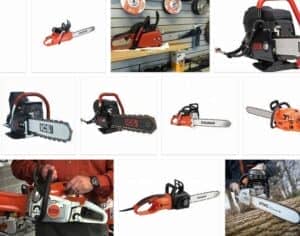
How to Get the Most Value from Your Home Depot or Lowe’s Rental Chainsaw
Renting a chainsaw from Home Depot or Lowe’s can be a cost-effective solution for occasional cutting tasks. However, to ensure you get the most value from your rental, it’s crucial to follow certain guidelines.
Choosing the Right Chainsaw
First, select the appropriate chainsaw for your project. Home Depot and Lowe’s offer a range of models, from lightweight electric saws to heavy-duty gas-powered ones. Consider the size and type of trees or branches you’ll be cutting, as well as the duration of your rental.
Safety First
Before operating the chainsaw, familiarize yourself with its safety features and proper handling techniques. Wear appropriate protective gear, including gloves, safety glasses, and earplugs. Ensure the chainsaw is in good working order and that the chain is sharp.
Proper Use
To maximize efficiency, use the chainsaw correctly. Hold it firmly with both hands and maintain a stable stance. Cut at a slight angle to the grain of the wood, and avoid pinching the chain. If the chain becomes stuck, stop the saw and clear the obstruction.
Maintenance
During your rental period, perform basic maintenance to keep the chainsaw running smoothly. Check the oil level regularly and refill as needed. Clean the air filter and spark plug to prevent engine problems. If you encounter any issues, contact the rental center for assistance.
Returning the Chainsaw
When returning the chainsaw, ensure it is clean and in good condition. Remove any debris or sawdust, and check for any damage. Follow the rental center’s instructions for returning the saw and any accessories.
Additional Tips
- Rent the chainsaw for the shortest possible duration to minimize rental costs.
- Consider purchasing a chain sharpener to keep the chain in optimal condition.
- If you’re not comfortable operating a chainsaw, consider hiring a professional for assistance.
- Be aware of the rental center’s policies regarding insurance and liability.
By following these guidelines, you can maximize the value of your Home Depot or Lowe’s rental chainsaw and ensure a safe and efficient cutting experience.

Choosing the Right Rental Chainsaw for Your Project
When embarking on a project that requires the use of a chainsaw, renting one from a reputable home improvement store like Home Depot or Lowe’s can be a cost-effective and convenient option. These stores offer a wide selection of rental chainsaws, each tailored to specific tasks and user skill levels.
For smaller projects, such as trimming branches or cutting firewood, a compact electric chainsaw may suffice. These models are lightweight and easy to maneuver, making them ideal for homeowners with limited experience. However, if you need to tackle larger trees or perform more demanding tasks, a gas-powered chainsaw is a better choice. Gas chainsaws offer greater power and cutting capacity, but they require more maintenance and can be heavier to handle.
When selecting a rental chainsaw, consider the size and type of project you will be undertaking. For example, a 14-inch chainsaw is suitable for most residential projects, while a 20-inch chainsaw is better suited for larger trees or commercial applications. Additionally, consider the safety features of the chainsaw, such as a chain brake and anti-kickback mechanism.
Before renting a chainsaw, it is essential to read the instructions carefully and familiarize yourself with its operation. Wear appropriate safety gear, including gloves, eye protection, and earplugs. If you are unsure about how to use the chainsaw safely, ask a store associate for assistance.
Home Depot and Lowe’s typically offer daily, weekly, and monthly rental rates for chainsaws. The cost of the rental will vary depending on the type of chainsaw and the duration of the rental period. It is advisable to compare prices and rental terms between the two stores to find the best deal.
In addition to chainsaws, Home Depot and Lowe’s also rent other tools and equipment that may be necessary for your project, such as ladders, safety harnesses, and wood chippers. By renting the necessary equipment, you can save money on purchasing tools that you may only use once or twice.
Whether you are a seasoned professional or a first-time user, renting a chainsaw from Home Depot or Lowe’s can provide you with the right tool for your project. By following these tips and taking the necessary safety precautions, you can ensure a successful and safe experience.
Safety Tips for Using a Rental Chainsaw from Home Depot or Lowe’s
Renting a chainsaw from Home Depot or Lowe’s can be a convenient way to tackle outdoor projects. However, it’s crucial to prioritize safety when operating these powerful tools. Here are some essential tips to ensure a safe and successful experience:
Before You Start:
- Inspect the chainsaw thoroughly: Check for any damage or loose parts. Ensure the chain is properly tensioned and lubricated.
- Wear appropriate safety gear: This includes a hard hat, safety glasses, earplugs, gloves, and sturdy boots.
- Read the operator’s manual: Familiarize yourself with the chainsaw’s features and safety instructions.
During Operation:
- Start the chainsaw on a level surface: Hold the chainsaw firmly with both hands and keep your feet apart for stability.
- Keep the chain away from your body: Always point the chainsaw in a safe direction when starting or stopping it.
- Maintain a firm grip: Hold the chainsaw securely with both hands and keep your thumbs wrapped around the handles.
- Cut with caution: Only cut wood that is within the chainsaw’s capacity. Avoid cutting into nails or other metal objects.
- Be aware of your surroundings: Pay attention to obstacles, such as branches, roots, and other people.
After Use:
- Stop the chainsaw immediately: Release the throttle and allow the chain to come to a complete stop.
- Clean the chainsaw: Remove any sawdust or debris from the chainsaw and its components.
- Store the chainsaw properly: Keep the chainsaw in a dry, secure location out of reach of children.
Additional Tips:
- Never operate a chainsaw while under the influence of alcohol or drugs.
- Avoid cutting in wet or icy conditions.
- Be aware of the kickback zone: This is the area behind the chainsaw’s bar where the chain can kick back towards the operator.
- If the chainsaw becomes jammed, stop it immediately and clear the obstruction.
- If you encounter any problems or have any questions, do not hesitate to contact the rental store for assistance.
By following these safety tips, you can minimize the risks associated with using a rental chainsaw from Home Depot or Lowe’s. Remember, safety should always be your top priority when operating any power tool.
Comparing Home Depot and Lowe’s Rental Chainsaw Options
When embarking on home improvement projects or outdoor tasks, renting a chainsaw can be a cost-effective solution. Home Depot and Lowe’s, two leading home improvement retailers, offer a wide range of rental chainsaw options to cater to various needs. This article provides a comprehensive comparison of their rental offerings, highlighting key features, pricing, and availability.
Chainsaw Types and Features
Both Home Depot and Lowe’s offer a variety of chainsaw types, including electric, gas-powered, and cordless models. Electric chainsaws are ideal for smaller tasks, while gas-powered chainsaws provide more power for heavy-duty cutting. Cordless chainsaws offer the convenience of portability, making them suitable for remote locations.
In terms of features, Home Depot and Lowe’s rental chainsaws come equipped with safety features such as chain brakes and anti-kickback bars. Some models also include additional features like automatic oilers and adjustable chain tensioning systems.
Pricing and Availability
Rental prices for chainsaws vary depending on the type, size, and duration of the rental. Home Depot typically offers daily, weekly, and monthly rental rates, while Lowe’s provides hourly, daily, and weekly options. It’s important to compare prices and rental periods to determine the most cost-effective option for your project.
Availability of rental chainsaws can vary by location and time of year. It’s advisable to call ahead or check online to confirm availability before visiting the store.
Additional Services
In addition to chainsaw rentals, Home Depot and Lowe’s offer a range of related services. These include safety training, blade sharpening, and repair services. By utilizing these services, you can ensure that your chainsaw is operating safely and efficiently.
Choosing the Right Chainsaw
When selecting a rental chainsaw, consider the following factors:
- Project requirements: Determine the size and type of chainsaw needed for your specific task.
- Safety features: Ensure that the chainsaw has adequate safety features to protect you during operation.
- Price and availability: Compare rental prices and availability to find the best option for your budget and schedule.
- Additional services: Consider the availability of related services such as safety training and blade sharpening.
By carefully considering these factors, you can choose the right rental chainsaw from Home Depot or Lowe’s to complete your project safely and efficiently.
Q&A
What is the rental cost of a chainsaw at Home Depot?
$49 per day
What is the rental cost of a chainsaw at Lowe’s?
$49 per day
What is the minimum rental period for a chainsaw at Home Depot?
4 hours
What is the minimum rental period for a chainsaw at Lowe’s?
4 hours
What safety equipment is required to rent a chainsaw at Home Depot?
Safety glasses, earplugs, and gloves
What safety equipment is required to rent a chainsaw at Lowe’s?
Safety glasses, earplugs, and gloves

